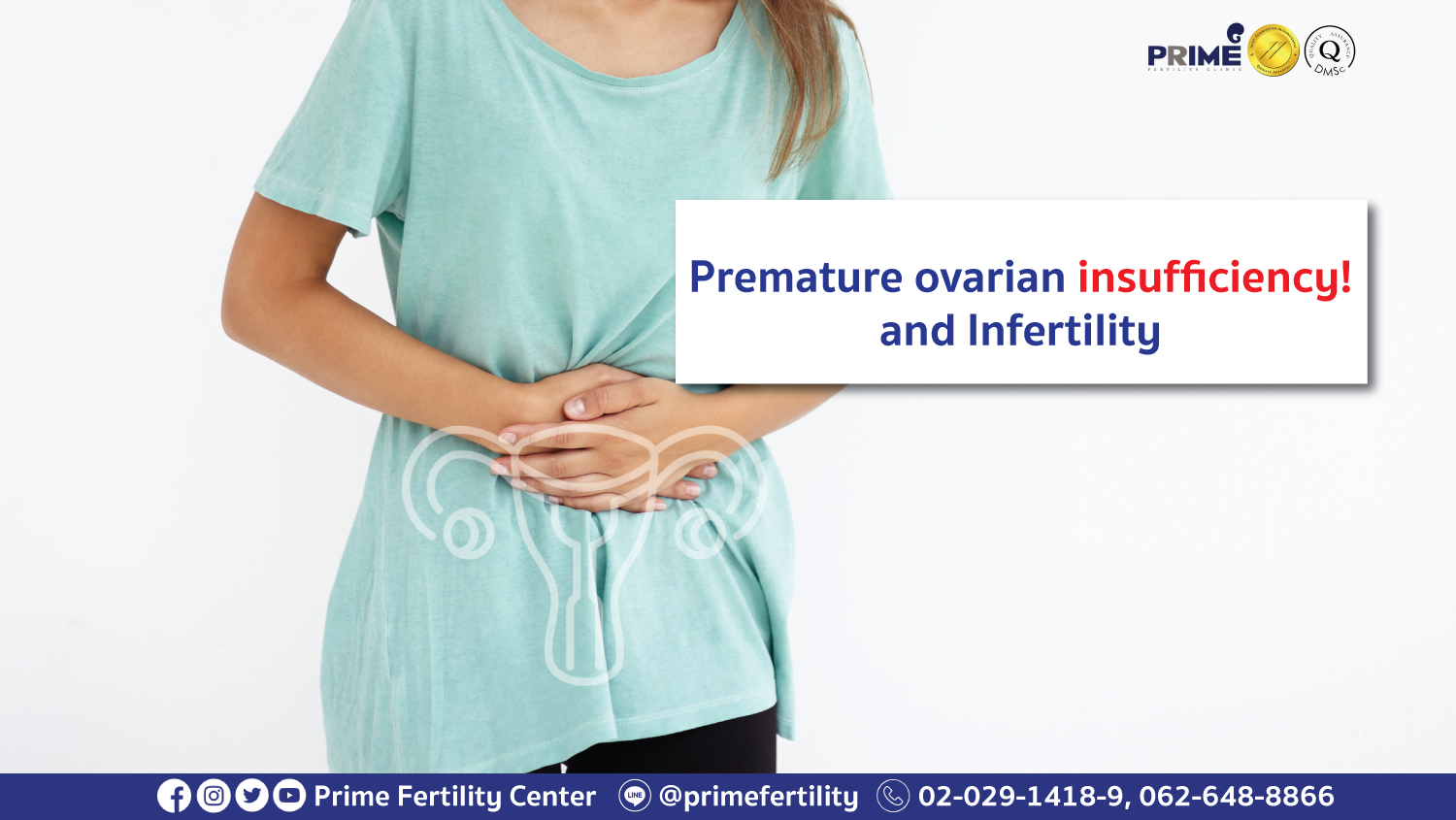Premature ovarian insufficiency (POI) is a condition that female’s ovaries stop functioning before female reaches the suitable age or before 40 years of age.
The symptoms are including:
- The absence of period
- Low estrogen levels together with very high FSH (follicular stimulating hormone) levels. FSH is made by pituitary gland. This is the same situation that can be found in menopause women.
About 5-10% of POI patients can have ovulation in some menstrual cycles and probably conceive or try to take some ovarian stimulation medicines or gonadotropins for egg development and ovulation. In case of poor ovarian response, patients may need the egg donation with the assisted reproductive technologies in order to have a baby.
Nowadays, identifiable causes of infertility from males and females are statistically equal. Which are 40% from females, 40% from males and 20% from both.
Causes of female infertility may occur from genetic diseases, effects of radiation therapy make ovarian dysfunction as well as the modern lifestyle that easily causes people stressful.
Causes of premature ovarian insufficiency
About 20-30% are caused by chromosomal abnormalities and genetic disorders. The genetic disorder that is mostly found is Turner syndrome. A woman with Turner syndrome has normal ovarian development before birth but the follicles rapidly shrink. In some cases, the presence of Turner syndrome occurs during infancy or childhood. Therefore, patient’s ovaries will stop working earlier than normal females.
Disease severity varies among individuals. Some cases may not have menstruation and sexual development at all. Some cases may have sexual development during puberty but they may have periods for few years before their ovaries stop working.
Immune system such as SLE (Systemic Lupus Erythematosus), autoimmune thyroid disorder or parathyroid disease. This cause can be found for 10-30%. Some women probably retrieve their ovarian performance after receiving the treatment or getting better from the illness.
Ovaries stop working after surgery. Sometimes the ovarian surgery may cause reduction in the number of follicles due to injury or ovarian removal. Or the surgery disturbs blood vessels that nourish ovaries then causes ovarian infarction and ovarian dysfunction consequently.
Chemotherapy: Patients who receive radiation therapy for several times, receive many doses of radiation or chemotherapy medicine are more likely to suffer from ovarian damage and ovarian failure.
Environmental factors: Smoking habit can reduce the number of estrogen. Insecticide and some heavy metals may harm the ovarian cells.
Infections e.g., mumps, tuberculosis, malaria. Some infections probably lead POI. However, these cases are rarely found since patients can retrieve their normal ovarian performance after the successful treatment against that infection.
Unknown causes: 60-70% Of POI causes are still unknown. The condition happens spontaneously.
If you physically feel something went wrong or your periods stop before reaching the suitable age, these probably mean the sign of ovarian failure. Please hurry up to see the doctor and find out the appropriate treatment respectively.
Reference:
– https://family.mthai.com
– http://www.becomemom.com
–
Reference: Prime Fertility Center Co., Ltd.

